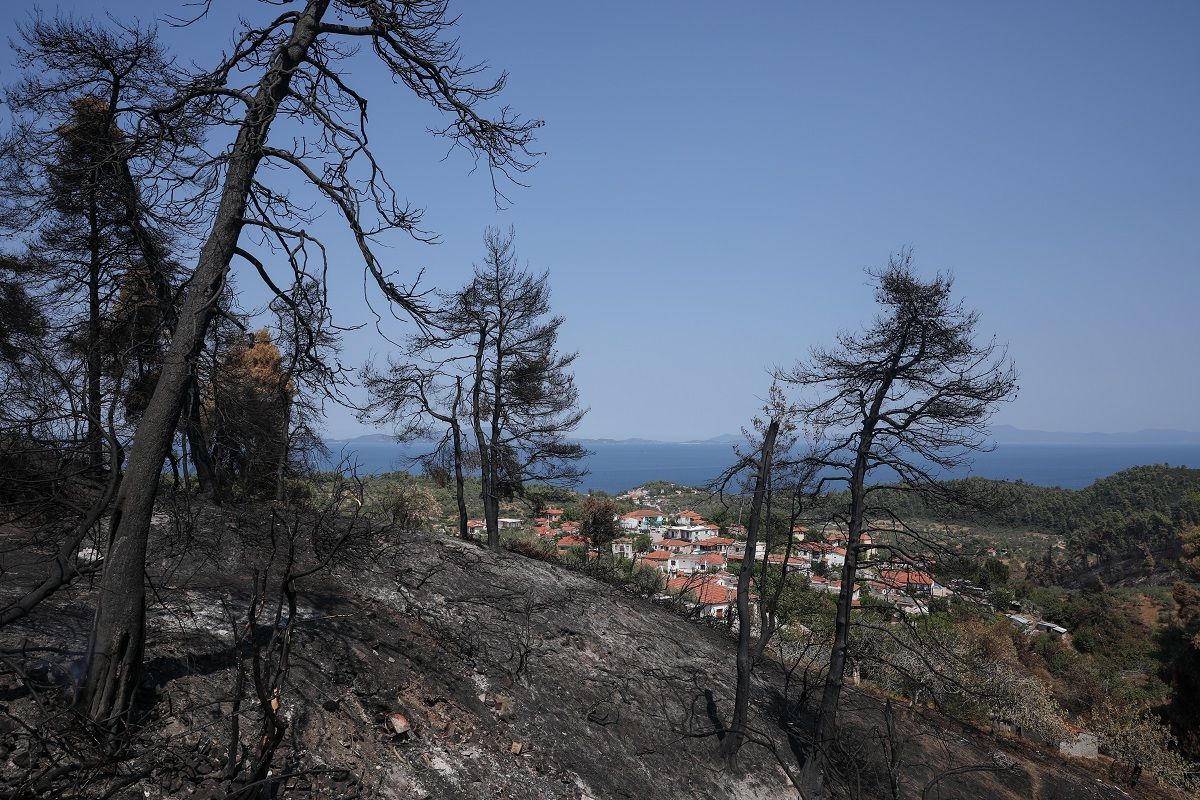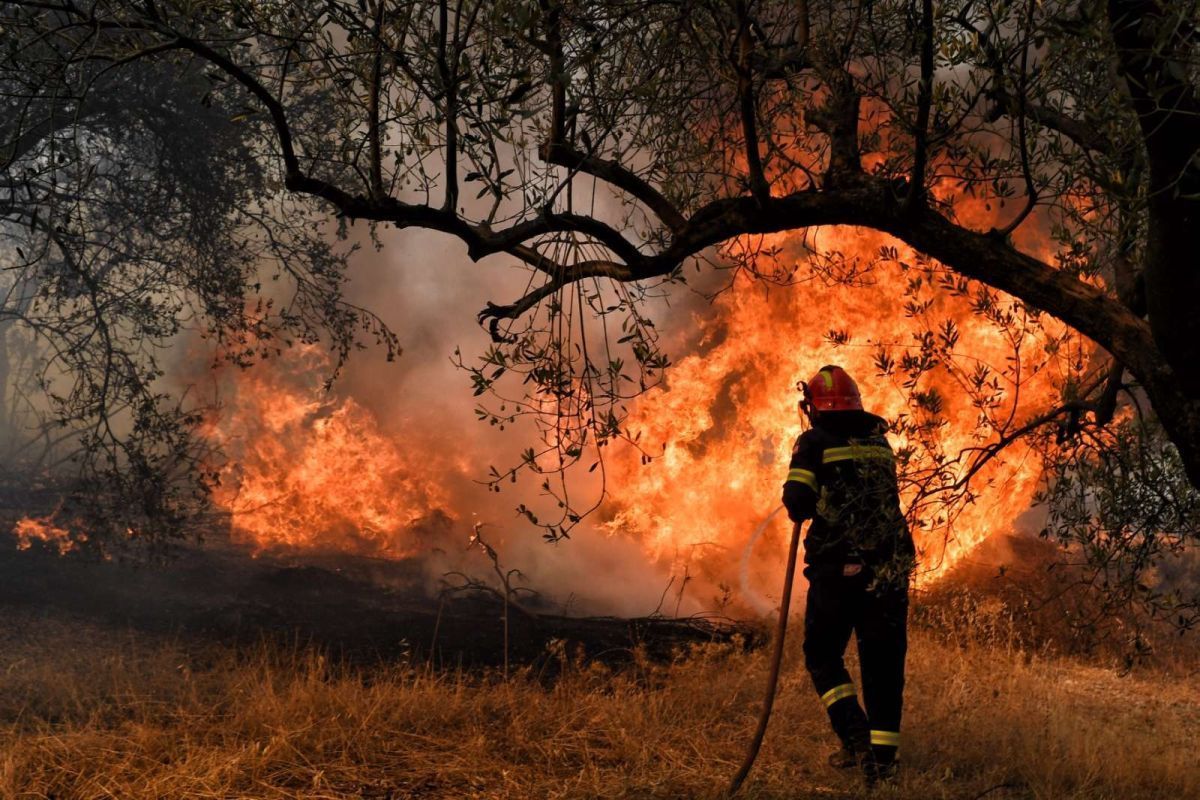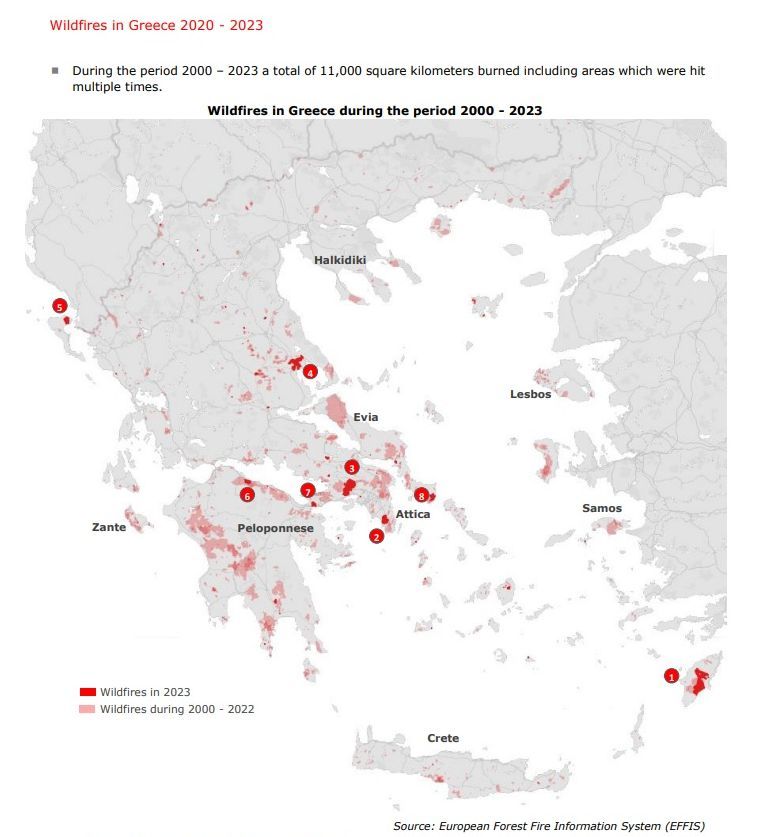Study Findings Reveal Urgent Need for Fire Prevention Plan in Greece
A total of 11,000km2 went up in smoke in Greece from 2000 to 2023 as a result of fire, according to a study released this week by GBR Consulting following the destruction on Rhodes last month.
According to the findings, many of the fires affected the same areas more than once. The most fatal of all was the 2018 fire in Mati, Northeastern Attica, which left behind 104 dead and many missing. The Mati fire was the second deadliest globally.
The worst years in terms of fires in the period under review, according to the report, were in 2000, 2007 and 2021, which led to deaths of residents and animals, endangered human life and safety, destroyed forests, farmland, wildlife, damaged infrastructure, buildings, recreational and tourism facilities.
Among these, the uncontrolled fires in the summer of 2021 which burned Northern Evia for days taking a massive toll on the environment, lives, tourism and infrastructure. In 2000, fires ravaged the island of Samos, and in 2007, a total of 2,600m2 went up in smoke burning woodland in the Peloponnese and Southern Evia.
This year so far, not including the fires this week in Arcadia and outside Attica, GBR analysts said 543km2 of forest have been burnt. According to the findings, the fires that burned for 10 consecutive days on Rhodes alone last month, destroyed 14.5 percent of the island’s total surface or 203km2 of land impacting local communities and tourism industry.
Despite the increasing number of fires every year in Greece, and the warnings by environmentalists and groups like WWF, Greek authorities launched the 112 emergency warning system in 2019 as a pilot program and in 2020 in full operation mainly to facilitate Covid-19 measures.

General view of the burnt forest in the mountain near the village of Avgaria on Evia island. Copyright European Union 2021 / Photographer: Sotiris Dimitropoulmos.
In the meantime, Greece has received EU funding which should have gone into prevention, education and upgraded means of fire deterrence.
Last month, World Wildlife Fund (WWF) Greece reiterated its call on the government to enter constructive dialogue with all stakeholders and decide on a fire prevention plan for the years ahead as the climate crisis takes hold.
In 2019, the WWF had urged Mediterranean country governments to take immediate action and formulate fire prevention strategies. Indicatively, more than 80 percent of Europe’s total burnt land is in the Mediterranean.
Speaking in parliament last month as fires continued to burn across Greece, Greek Prime Minister Kyriakos Mitsotakis said the government would be prioritizing prevention strategies, admitting that the conditions made it difficult to deal with the fires. He said the Mediterranean was a “climate change hotspot” and that “difficult summer was still ahead”.
According to GBR analysts, environmental protection is of utmost importance as is formulating a comprehensive fire prevention and management strategy.







